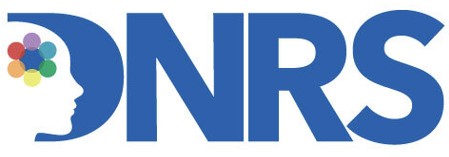Founder of the DNRS program Annie Hopper, and the coaching team took a deep dive into exploring the realm of emotions and the work of Dr. Candace Pert, a former professor at the Georgetown School of Medicine, author of Molecules of Emotion, Everything You Need to Know to Feel Go(o)d, and more than 250 scientific articles. We provide a breakdown of their discussion on the science behind boosting your emotional state, and why it matters when it comes to health and healing.
The Science Behind Emotions
What we experience as an emotion are chemicals (molecules of emotion) vibrating at cell receptor sites that are located throughout the brain and body. Emotions are powerful signalling molecules that send a message to the cell and DNA within the cell what to do – should I be in a growth state, or should I be in a protective state?
Positive emotions pave the way for moving the cell into a growth state, where substances can enter the cell and signal the DNA to create proteins needed for regeneration and repair. We can also regulate pain signals and immune function through elevating our emotional state. Moreover, our emotional state dictates what memories are accessed and what neural networks in the brain are engaged and strengthened.

How Our Emotions Are Impacted By Limbic System Impairment
Understanding how our emotions are impacted with limbic system impairment and how we can utilize cultivating positive emotions as a tool to assist us in rewiring our brain is pivotal to the healing process. Dr. Jill Bolte Taylor, neuroscientist and author of My Stroke of Insight suggests that in a healthy brain, emotions typically last around 90 seconds. Lingering negative emotions may indicate a stuck survival response, (as seen with limbic system impairment) or the story we attach to it.
When the world is viewed through an unconscious lens of threat, it alters how we perceive the environment, and how we relate to the world and the people in it. The most common emotions associated with limbic system impairment are fear, sadness, despair, anger, hopelessness, and worry. This makes sense when the brain is constantly on the lookout for potential threats. Remember, this is not the person’s fault – the brain may be stuck in a survival response.
Please keep in mind that we don’t need to fear survival-related emotions as sometimes these emotions are healthy and appropriate. However, moving into a state of growth requires that we provide the brain and body with a context of safety, and we can do so by choosing to cultivate and soak our brains and bodies with the chemical signature produced by positive emotions.
Why Elevating Your Emotional State is Integral To Healing Your Limbic System
With DNRS we are using our conscious control of emotions (by using our prefrontal cortex to choose to elevate our emotional state, even when we don’t feel like it) to create a chemical state that overrides the threat response, and helps the brain and body move into a state of repair and regeneration. This is not a process of emotional denial, rather, this is an understanding of the power of emotions. Simply put, we use the science of emotion to help facilitate rewiring the brain.

Even when we don’t genuinely feel positive, we can exercise our brain and choose to cultivate a positive emotional state. With time and repetition, we can change our emotional landscape and gain greater access to the full realm of emotions, in a healthy and balanced way.
In the beginning, cultivating a positive emotional state when you are suffering from limbic system impairment can seem challenging. However, with repetition, it gets easier and feels more natural. Using a support service like our Share-a-Laugh classes, doing full rounds of the DNRS retraining steps, and listening to uplifting music can assist you greatly in this endeavour. Keep in mind that we are shifting not just to peace and calm but shifting the emotional pendulum all the way to a sense of joy, connection, love, awe or gratitude. Peace and calm are stepping stones to these. The more often we cultivate positive emotions, the easier it gets. The more time we spend soaking and marinating in this state, the greater the benefit on our health and our emotional well-being!
To learn more about limbic system impairment and the DNRS program, click here.

